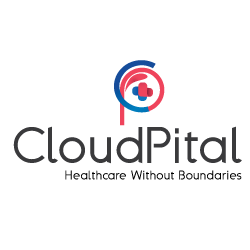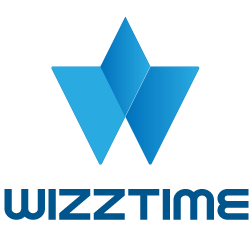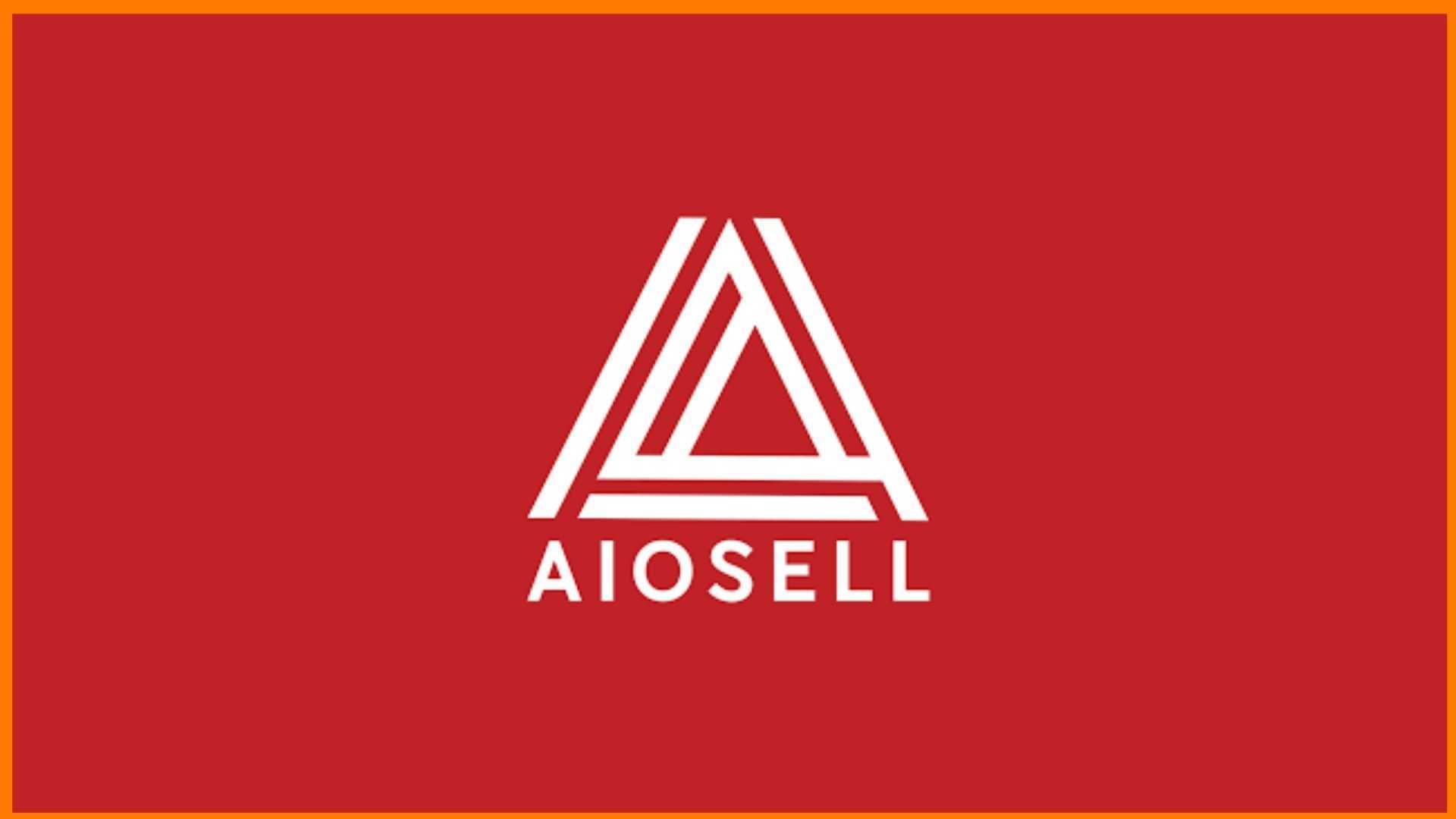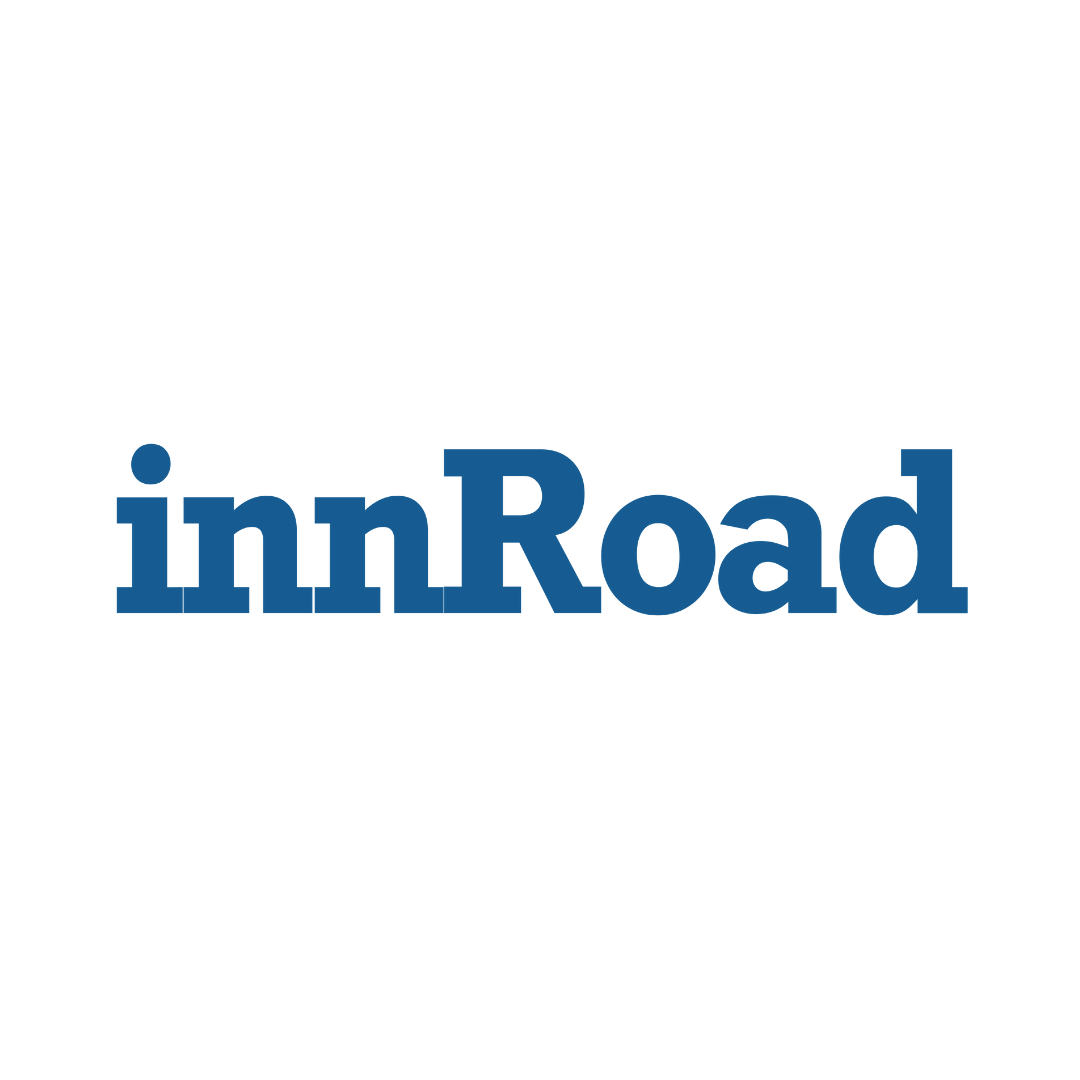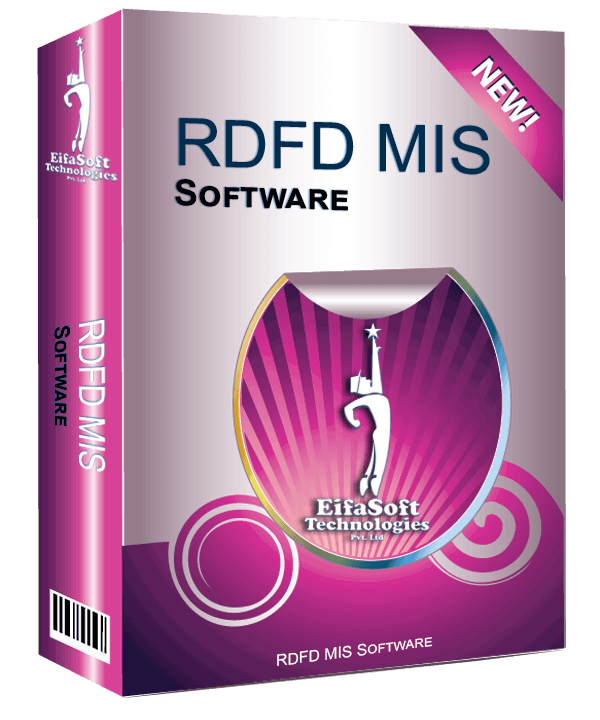Yes, MIS software can be accessed from various devices and platforms. With technological improvements and the rise of cloud-based solutions, most MIS software today supports a wide range of devices and operating systems. This enables customers to access their data and applications from desktops, laptops, tablets, and even smartphones with no compatibility difficulties. This feature encourages ease of use and flexibility for organizations and employees.
List of 20 Best MIS Software
InsureCRM is a CRM solution tailored for the insurance sector. With a focus on customers, this highly adaptable software caters to the distinct requirements of insurers, brokers, and clients. Experience the advantages of InsureCRM for your enterprise...Read More InsureCRM
Hotelogix PMS is a cloud-based solution that transforms hotel management and drives profitability. Seamlessly integrated with top Online Travel Agents and Global Distribution Systems, Hotelogix offers global visibility and eliminates booking discrepa...Read More Hotelogix PMS
CMIS, the premier electrical estimating solution designed specifically for contractors and builders. This innovative cloud-based software offers a host of valuable features, such as instant document creation and organization, efficient project and cl...Read More CMIS
Cenium is a hotel management software that offers a complete range of professional tools to simplify and optimize your hotel operations. Our user-friendly interface allows you to streamline tasks and improve efficiency in every aspect of your busines...Read More Cenium
CRM4Sure is a business tool to elevate your performance. Streamline your sales process with powerful features like lead management, funnel organization, task planning, and real-time activity tracking. Stay on top of your game with GPS-based trip plan...Read More CRM4Sure
Ganttic is a resource and project management software that offers a visual, customizable representation of your project portfolio and resource pool. Its efficient deployment process and user-friendly interface make it suitable for all types of teams...Read More Ganttic
Experience the ultimate hospitality management solution with SkyWare PMS. Our comprehensive software integrates property management, sales, catering, and point-of-sale systems to create a seamless experience for independently owned hotels. With an in...Read More SkyWare PMS
Protel PMS simplifies hotel management and enhances guest satisfaction by optimizing and coordinating various operations. The software offers efficient billing, customizable integrations, and seamless communication between departments, allowing staff...Read More protel PMS
Cloudpital is a and cost-effective software platform specifically designed to manage information systems in the healthcare field. With our hospital management information system (HMIS), Cloudpital offers patient-centered solutions to cater to all the...Read More Cloudpital
WizzTime, the must-have solution for precise tracking of document preparation and drawing time. With its automated time sheet generation feature, you can easily monitor and manage your projects while receiving timely updates on tasks completed and re...Read More WizzTime
Aiosell Property Management- a cloud-based solution ideal for small to mid-sized properties. Our intuitive Hotel Property Management System and integrated POS system offer a variety of features to simplify operations. With a track record of boosting...Read More Aiosell Property Management
WINHMS Enterprise solution for managing high-end hotels and large chains. This advanced software offers a wide range of features to efficiently handle all hotel operations, such as reservations, sales, inventory, and payroll. With its comprehensive p...Read More WINHMS Enterprise
innRoad is a cloud-based hotel management software. Our all-in-one solution comes equipped with a booking engine and property management tools, fully customizable to suit businesses of all sizes. Say farewell to manual processes and hello to streamli...Read More innRoad
EasyReports – is the solution for MIS and Reporting Automation. Streamline your reporting process by integrating with popular ERPs like Tally.ERP9, SAP B1, and NAV. With customizable dynamic dashboards and a user-friendly interface, easily cre...Read More EasyReports
eSUB is the top choice for subcontractors seeking efficient management of construction projects. Our cloud-based software allows for seamless connectivity and real-time updates from onsite locations. Simplify your construction process with our extens...Read More ESUB
RD-FD MIS Software, perfect for companies and organizations venturing into the world of RD-FD. At Eifasoft Technologies, our goal is to provide top-quality solutions to ensure your RD-FD business thrives, regardless of its scale. Our software streaml...Read More RD-FD MIS Software
Oracle Hospitality is a restaurant management software designed for businesses of all scales. It provides advanced features to help accelerate your restaurants growth. With its intuitive and effective systems, cultivating strong customer relationship...Read More Oracle Hospitality
eviivo suite - the leading property management software for the hospitality industry. Streamline your operations and improve efficiency with our comprehensive solution that seamlessly integrates with OTAs and offers automated tools. Elevate your gues...Read More eviivo suite
BuyerEase is a purchasing software that optimizes your buying processes and provides end-to-end solutions. Its advanced capabilities not only improve business operations but also increase revenue, broaden your market reach, and shorten lead time. Say...Read More BuyerEase
Learn More About MIS Software
- What Is MIS Software?
- What Are The Recent Trends In MIS Software?
- Benefits Of Using MIS Software
- Important Factors To Consider While Purchasing MIS Software?
- What Are The Key Features To Look For In MIS Software?
- Why Do Businesses Need MIS Software?
- How Much Time Is Required To Implement MIS Software?
- What Is The Level Of Customization Available In MIS Software?
- Which Industries Can Benefit The Most From MIS Software?
- Conclusion
What Is MIS Software?
MIS software, which stands for Management Information System software, is an essential tool for modern firms seeking to successfully manage and utilize their data. It is a comprehensive software solution that integrates several technologies, processes, and systems to help with decision-making, strategic planning, and performance monitoring.
MIS software is designed to encompass all elements of a company's operations and activities, assisting businesses in collecting, organizing, analyzing, and presenting data in an easily accessible, actionable, and valuable format. This allows organizations to make informed decisions based on real-time, reliable data and stay ahead of their competitors.
One of the most important functions of MIS software is data management. It enables businesses to collect data from multiple sources, including sales, marketing, inventory, and finance, and store it in a consolidated database. This database is then utilized to create reports, dashboards, and visualizations that provide a complete picture of the company's performance and trends.
In addition to data management, MIS software provides capabilities including project management, resource allocation, performance tracking, and forecasting. These features assist firms in streamlining their processes, optimizing resources, and identifying opportunities for improvement. MIS software is extremely adaptable and can be adjusted to meet the unique demands of any firm.
It is ideal for small, medium, and big businesses in a variety of industries, including healthcare, retail, manufacturing, and finance. Investing in MIS software can significantly improve a company's bottom line. It can boost efficiency, productivity, and profitability by finding inefficiencies, optimizing processes, and providing insights into better decision-making. Furthermore, it allows organizations to remain competitive while adapting to shifting market trends and client needs.
What Are The Recent Trends In MIS Software?
The area of management information systems (MIS) is constantly growing, as is the software that supports them. As firms become more data-driven, the demand for advanced MIS software increases.
We will go over recent trends in MIS software to assist you make informed decisions about purchasing or upgrading your organization's MIS software.
1. Cloud-Based Solutions: One of the most important trends in MIS software is the increased use of cloud-based solutions. These solutions have various advantages over traditional on-premise systems, including cost savings, scalability, and remote access. With MIS data becoming increasingly important for corporate operations, the cloud's flexibility and dependability make it the preferred option for enterprises.
2. Real-Time Analytics: MIS software has developed from a data storage tool to a sophisticated analytics platform. Real-time analytics is a popular trend in MIS software, giving firms access to real, actionable data that allow them to make quick and educated decisions. This trend has resulted in the development of enhanced data visualization technologies, which help stakeholders better understand and interpret data.
3. Mobile Compatibility: As remote work and the use of mobile devices become more common, MIS software must be mobile-friendly. This trend has resulted in a surge in mobile-compatible MIS software, allowing users to access data and insights from anywhere and at any time. This capability is extremely useful for firms with geographically distributed teams.
4. Artificial Intelligence (AI): AI has been a buzzword in the IT world for some time, and it has found its way into MIS software. AI-powered MIS systems may automate mundane activities, analyze data, and even make predictions based on past performance. This trend has the potential to improve efficiency and accuracy in decision-making processes.
5. Integration Into Other Systems: As more firms employ software solutions to support their operations, there is an increasing demand for these systems to connect seamlessly. MIS software is no exception, and the integration of other systems, such as customer relationship management (CRM) and enterprise resource planning (ERP), is gaining popularity. This connection enables faster and more accurate data transfer between systems, resulting in a comprehensive view of corporate activities.
Benefits Of Using MIS Software
MIS (Management Information System) software is a useful tool for enterprises of any size. It integrates technology, data, and procedures to assist firms in making informed decisions, streamlining operations, and achieving strategic objectives. There are various benefits to deploying MIS software, which can have a significant impact on a company's success.
Here are the main advantages of adopting MIS software:
1. Centralized Data Management: MIS software enables firms to centralize data from multiple sources into a single secure location. This removes the need for various software packages and spreadsheets, saving time and lowering the likelihood of error.
2. Real-Time Reporting And Analytics: MIS software allows firms to access real-time data and analytics dashboards, which provide a complete picture of their operations. This enables fast decision-making and the identification of trends and patterns that drive corporate growth.
3. Routine Task Automation: Routine processes like data entry, report generation, and notification sending are automated using MIS software. This allows staff to devote more time to vital tasks, enhancing productivity and efficiency.
4. Improved Communication And Collaboration: Management information systems software provides a centralized platform for team members to communicate and collaborate. This improves communication, fosters teamwork, and boosts accountability.
5. Tailored And Tailored Solutions: MIS software can be tailored to match a company's specific requirements. This guarantees that the software is consistent with the business's operations and goals, resulting in a more efficient and effective system.
6. Improved Data Security: MIS software provides strong data security measures like as encryption, access limits, and scheduled backups. This safeguards sensitive corporate data from cyber threats and ensures business continuity.
7. Cost Savings: By streamlining operations, increasing productivity, and lowering the chance of errors, MIS software can result in significant cost savings for enterprises.
Important Factors To Consider While Purchasing MIS Software?
When it comes to acquiring Management Information Systems (MIS) software, there are a few key elements to consider before making a purchase. Choosing the correct MIS software for your organization is critical since it streamlines business processes, data management, and decision-making.
The following are some important considerations to consider while assessing and acquiring MIS software.
1. Understanding Your Business's Needs: Before you begin your search for MIS software, you should first evaluate your company's objectives and goals. Every firm has distinct requirements, and selecting software that meets those needs is critical to its success. Take the time to determine which areas of your organization need to be improved, as well as the exact features and functionalities you desire from MIS software.
2. Scalability & Flexibility: Your software must be able to adapt to the changing needs of your business as it expands. This is where scalability and flexibility come in. Make sure the MIS software you chose can be adjusted and grown as your firm grows. This will save you the time and money of switching to a new system in the future.
3. Integration With Existing Systems: It is critical to evaluate how the new MIS software will work alongside your existing systems. Your software should work easily with your existing tools and apps to eliminate data silos and ensure smooth data flow between departments.
4. User-Friendliness And Training: No matter how powerful and complex the software is, it will be useless if your staff find it difficult to use. A user-friendly design and simple navigation are important things to consider when selecting MIS software. In addition, inquire about the vendor's training and support services to ensure that your team is properly qualified to use the program.
5. Security And Data Privacy: Because data is a vital asset for every firm, it is critical to select MIS software that prioritizes security and data privacy. Investigate the vendor's security methods for protecting your sensitive data and ensuring the program conforms with data protection requirements.
6. Price And ROI: While money should not be the primary consideration, it is certainly a significant one. Look beyond the price tag to the software's overall return on investment (ROI). Assess the cost-effectiveness of the features and functionalities available, as well as their alignment with your business objectives.
7. Vendor Reputation & Support: Before selecting a provider, thoroughly examine their reputation and track record of offering MIS software. Reading reviews and receiving comments from other organizations that have used the program might provide helpful information. It is also vital to assess the vendor's level of customer care, as you may need help in the future. Considering all of these considerations when selecting MIS software will enable you to make an informed decision and select the finest software for your organization's requirements. With the correct MIS software, you can increase operational efficiency, make better decisions, and drive corporate success.
What Are The Key Features To Look For In MIS Software?
When it comes to selecting the best MIS software for your business, there are numerous crucial features to consider. These characteristics will not only help you make an informed decision, but will also ensure that the program fulfills your organization's unique demands and expectations.
Let's look at the most important things to consider when looking for MIS software.
1. Integration Capability: One of the most essential features of MIS software is its ability to integrate with your current systems. This could include accounting software, project management tools, or any other applicable programs. This guarantees that data flows smoothly and that work is not duplicated.
2. Data Analytics: A decent MIS software should include advanced data analytics capabilities. This means it should be able to collect, analyze, and present data in a visually appealing and understandable format. This will allow you to get useful insights and make data-driven decisions for your company.
3. Customization Options: Each firm has its own distinct processes and workflows. As a result, selecting MIS software that allows for extensive customization is critical. This enables the software to adapt to your company's demands and give a more personalized experience.
4. User-Friendly Interface: The MIS software's user interface should be intuitive and easy to use. This ensures that your team can effortlessly access and utilize the program without requiring additional training. A simple, well-designed interface will boost productivity and efficiency.
5. Security Features: Data security is a significant consideration for all businesses. When selecting MIS software, ensure that it includes strong security measures such as data encryption, user authentication, and regular backups to protect your critical information.
6. Mobile Accessibility: With the development of remote work, it is critical to have access to MIS software via mobile devices. Look for software that has a mobile app or a responsive web interface, allowing you to access data and do activities while on the road.
7. Scalability: As your firm grows, your MIS software requirements may vary. It is critical to choose software that is scalable and can meet your future requirements. This will save you the headache and cost of moving to a new system later on.
Why Do Businesses Need MIS Software?
Businesses operate in a complicated and ever-changing world in which data and information move quickly. To make correct and timely decisions, organizations require a dependable and efficient system for gathering, storing, analyzing, and presenting information. This is where management information system (MIS) software comes in. MIS, or Management Information System, is an integrated software system that assists firms in successfully managing and utilizing their data, allowing them to make educated decisions and stay ahead of competitors.
One of the main reasons firms want MIS software is to streamline processes and increase efficiency. Businesses can use MIS software to automate regular processes like data input and report preparation, freeing up staff' time to work on more strategic projects. This not only saves time and resources, but also lowers the likelihood of human error, resulting in more accurate and dependable data. Another important consideration is data management.
MIS software provides a consolidated platform for firms to store and manage all of their data, including financial records and customer information. This reduces the need for numerous tools and systems, decreasing complexity and increasing uniformity throughout the business. Businesses can make more informed judgments and adapt to changing market trends when data is regularly updated and easily accessible.
MIS software also helps to improve communication and collaboration inside a firm. Employees can work smoothly together thanks to real-time data sharing and collaboration technologies, resulting in better coordination, faster problem-solving, and better decisions. Furthermore, MIS software frequently includes customisable dashboards and reporting features that enable firms to analyze and present data in a meaningful manner, making it easier to detect patterns, trends, and areas that need attention.
Finally, MIS software enables organizations to remain competitive in today's fast-paced digital environment. Businesses that embrace the power of data and use advanced analytics can get significant insights into their operations, consumers, and market trends. This allows them to not only identify new opportunities, but also potential dangers and obstacles, allowing them to address them in advance and stay ahead of the competition.
How Much Time Is Required To Implement MIS Software?
The time it takes to implement MIS (Management Information Systems) software varies based on your organization's size and complexity, as well as the software solution you choose. On average, it takes 3-6 months to fully integrate MIS software, including customization and integration processes. The first step in installing MIS software is to undertake a thorough review of your organization's requirements and existing processes.
This will assist in determining the specific features and functionalities required in the program, as well as any adjustments to existing systems. The MIS software must then be tailored to your organization's exact requirements. This covers creating user accounts, establishing access levels, and customizing reports and dashboards. The installation phase often includes data migration, which might take longer depending on the amount and complexity of the data.
This entails moving old data from diverse sources into the new MIS software while ensuring that it is properly prepared and arranged. Another important step is to train your personnel on how to utilize the MIS software efficiently. This can take anything from a few days to a few weeks, depending on the software's complexity and ease of use. Finally, the program will go through a testing and validation step to confirm that everything works properly and meets your organization's requirements. Once all of the essential changes have been performed, the MIS software will be ready for full-scale deployment.
What Is The Level Of Customization Available In MIS Software?
When it comes to managing and organizing the numerous facets of a business, having the correct software in place is essential. "Management Information Systems" (MIS) software is one such type that explicitly addresses this need. This sort of software assists firms in collecting, organizing, analyzing, and reporting data to help with decision-making and overall management. One crucial factor to consider while selecting MIS software is the level of customization. This refers to the software's ability to be customized to meet the unique needs and processes of a firm.
Let's take a closer look at the level of customisation offered by MIS software.
1. Flexible Data Entry Options: One of the most important features of MIS software is its capacity to collect and enter data from a variety of sources. This involves manually entering data, importing data from spreadsheets or databases, and even automatically retrieving data from other systems. The extent of customisation in this aspect enables firms to select the best approach for their data entry requirements.
2. Customizable Dashboards And Reports: MIS software has a variety of dashboards and reports for monitoring and analyzing data. These can be tailored to the unique measures and KPIs that apply to a particular organization. Instead of using generic templates, firms may now develop personalized reports that provide a complete insight of their activities.
3. Scalability: Scalability is a crucial feature of MIS software modification. This refers to its ability to meet the changing needs of a business as it grows and evolves. Customization allows businesses to add and modify modules, features, and reports as needed, ensuring that the software meets their evolving demands.
4. User Permissions And Access Levels: The level of customisation in MIS software includes user permissions and access levels. This gives organizations control over who has access to specific data and software functions. Customizing these settings allows firms to guarantee that critical information is only available to authorized workers, ensuring data security and privacy.
5. Integration With Other Systems: Many firms use numerous systems to manage various elements of their operations. MIS software integrates with other systems, such as accounting and human resource software, to streamline procedures and improve efficiency. This integration can also be tailored to meet the unique demands and processes of a company.
Which Industries Can Benefit The Most From MIS Software?
MIS (management information system) software is a strong tool that allows firms of all sizes to simplify operations and make data-driven decisions.
However, several businesses can considerably benefit from incorporating MIS software into their day-to-day operations.
1. Manufacturing Industry: The manufacturing industry involves effective administration of production processes, supply chains, and inventory. MIS software can provide real-time information on raw material inventories, manufacturing schedules, and logistics, allowing enterprises to make more informed decisions and stay ahead of the competition.
2. Healthcare Industry: It is critical in the healthcare industry to manage patient data, medical devices, and inventory. MIS software can automate these activities, lowering the risk of errors and increasing patient outcomes. It can also monitor patient outcomes and performance metrics, enabling healthcare providers to make data-driven decisions that increase efficiency.
3. Retail Industry: In the highly competitive retail market, MIS software can assist retailers track sales, inventory levels, and consumer patterns. This enables them to make better ordering and stocking decisions, resulting in more sales and customer satisfaction.
4. Educational Sector: With a high number of students and staff, educational institutions might profit from optimizing their processes with MIS software. This can include handling student data, course timetables, and other administrative chores in order to increase overall efficiency and structure.
5. Financial Services Industry: In the financial services industry, MIS software can help to streamline activities including banking, investing, and insurance. It can also assist financial organizations in analyzing and managing data in order to make more informed financial decisions, decrease risk, and comply with regulations.
6. Hospitality Industry: Hotels, restaurants, and other hospitality organizations can use MIS software to manage reservations, inventory, and client information. It can also provide vital insights into client preferences and comments, allowing firms to enhance services and attract new customers.
Conclusion
Finally, MIS software plays an important role in streamlining and optimizing corporate processes. MIS software enables firms to make data-driven choices while also improving overall efficiency and productivity by providing a single platform for data management and analytics. When considering acquiring MIS software, you should carefully analyze your company's needs and budget, as well as the features and functionality provided by various providers.
Conducting comprehensive research, reading reviews, and requesting demos can all help you make an informed selection. MIS software can provide a number of advantages, including improved data administration, more communication and cooperation, improved reporting and analysis, and better resource usage. However, it is critical to ensure that the software interacts seamlessly with your existing systems and is user-friendly for your workforce.
Keep in mind the vendor's scalability and support options. As your firm develops and evolves, your MIS software should be able to adapt and meet your evolving requirements. We hope this buyer's guide has helped you choose the best MIS software for your business. By taking into account all of the relevant variables, you can ensure that the software you select will be a significant asset to your firm for many years.
MIS Software FAQ's
Can MIS Software Be Accessed Across Multiple Devices And Platforms?
Is MIS Software Future-Proof And Adaptable To Emerging Technologies Like AI, Blockchain Or IoT?
The flexibility of MIS software is heavily dependent on the specific product and its development. However, many modern MIS software is intended to be future-proof and adaptable to upcoming technologies such as AI, blockchain, and IoT. This is accomplished by constant updates and integration of new technology. To keep ahead of the competition in today's ever-changing business scene, it is critical to research and choose MIS software that is always evolving.
Is There A Free Trial Offered To Assess MIS Software Before Committing?
Yes, many MIS software companies provide a free trial period for consumers to evaluate the product before making a purchase. This enables potential clients to evaluate the software's functionality and user interface and determine whether it satisfies their business requirements. It is recommended that you use these trials to check that the MIS software is a good fit for your organization before making a commitment.
Does MIS Software Offer Data Security Features And Meet Regulatory Compliance Standards?
Yes, MIS software often has strong data security safeguards to safeguard sensitive information. These may include encryption, access control, and regular backups. Furthermore, many MIS software solutions are built to meet regulatory standards such as HIPAA or GDPR, ensuring that your data is managed in accordance with industry guidelines. Make sure you research your specific MIS software to validate its data security and compliance features.
Can MIS Software Integrate Seamlessly With Existing Tools And Platforms?
Yes, much Management Information Systems (MIS) software is designed to work seamlessly with existing tools and platforms. They frequently provide open APIs and support popular file formats to enable easy data transmission between computers. Additionally, some MIS software provides unique connectors to address the specific needs of enterprises. This helps to streamline operations and improve overall productivity, making MIS software an excellent investment for firms.









